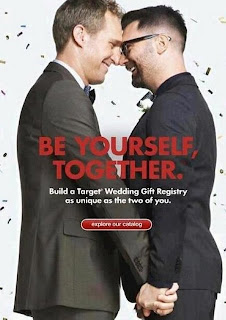   |
| Can You Spot the Enemy? |
Unfortunetly, the public spotlight can uncover some nastiness. Forums, memes and fan-based petitions have thrown Wonder Woman's golden lasso around the nerd community and uncovered some unpleasant turths. Namely, that our comminity can be a bunch of racist, sexist storm-troopers (not the good kind). As Jezebel.com so eloquently put it, there is an assumption that if you're female you can never fully be a part of nerd culture.
 |
| Shoutout to my Nerd-tacular Portland homegirlsThe Doubleclicks |
Now, the new Peter Parker is basically a hipster from Williamsburg (#redundant?). If these fans don't stop barking we could be deprived of a female heir to the Skywalker Legacy. Don't get me wrong, there are some superheros who I think should stay white and/or male for the sake of their characters. Batman for example. The Dark Knight is supposed to be someone who had every privilege. I think to deny him white privilege would be a disservice to the character, but that's a different story.
 |
| Worked for Green Lantern! |
As for women, it's no surprise most female superheros are mere accessories to a male counterpart. The nerd community is one of sci-fi and fantasy violence. Violence for fun has traditionally been relegated to the male side of the gender-dome, but as archaic sexist relics decay, more and more women are being told it's okay to like whatever they like, and are finding their way to the fantasy world just now.
 |
| Sorry. I couldn't find one with Barbie as the Sargent. |
Let me put it like this fellow gamers, dreamers and allergen-avoiders; there are two kinds of nerds, true nerds and 'tru-nerds.' True nerds will pledge their patriotism to the Nerd Kingdom for good, while 'tru-nerds' are armchair game-masters. They're into nerddom for as long as Robert Downy Jr.is playing Iron Man, and will quickly abandon the culture in tandem with the rest of the nation once Mr. Downy Jr. decides he wants to win an Academy Award for real.
These exclusionary tactics are meant to keep out 'tru-nerds,' but at the expense of the true nerds. When we exclude other people people from our world of escapism, light and darkness, we eradicate people's dreams. We squelch creative potential and we deny the next generation of nerdlings (those introverted dreamers with whom our future children may someday play).
 |
| The Nerd Kingdom Coat of Arms |
Let's face it ,Nerd-dom will last forever.This fad won't. We need to overcome our comfort zones and embrace these newcomers.This means widening our ethnic and gender-based frames of reference. The more permanent voices we have in the community, the stronger and more vibrant it will be. If our new friends don't understand a reference since they're coming to the Nerd Game at a different time in their life, teach them! Don't make fun of them or reference the awful 'Idiot Nerd Girl' Meme.
I know we want our heroes to look and sound just like us, but in the immortal words of Kiara from The Lion King II: They ARE us. I mean, come on. How many nerds can claim such a level of nerdiness as to reject the Jedi and join the dark side IN FRONT OF MACE WINDU? One little girl did. I'm sure some day she'll find friends to sling force-lighting with, and when that day comes, I can only hope they treat her with same the dignity and respect a Sith Lord deserves.
As for the rest of you, be patient with the Nerds. Yes, they're insular and slow to change. But more than any other group out there, they respond well to rational argument. And now, for your enjoyment, is a dog singing the HALO theme.
 |
| You tell em. |
As for the rest of you, be patient with the Nerds. Yes, they're insular and slow to change. But more than any other group out there, they respond well to rational argument. And now, for your enjoyment, is a dog singing the HALO theme.





